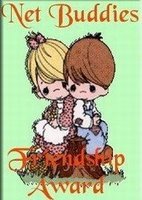Go for eco-friendly living, here are some ways:
2.
3.
4.
5.
6.
7.
You may already bring reusable bags to the grocery, but here's a way to waste less at the dry cleaner, too, put your clothes on a handy bag.
8.
Go for eco-friendly living, here are some ways:
Posted by Wenchie at 3:16 PM 1 comments
Labels: household tips, housekeeping, useful tips
Do you have heaps of financial papers in your house? Bills, receipts, credit card statements, tax records and investment files may have piled-up last year. Now is the best time to start arranging your records with these easy and useful organizing tips.
Throw away the unnecessary. Before doing anything else, you must know how to segregate your papers. Commonly, you can divide them into three. One is for records you need for less than one year, another for papers up to 5 years and then last is for documents you will need to hold on to indefinitely. For example, do you really need to keep your ATM withdrawal slips or your credit card receipts? It would be good practice to keep a record of these things and when it is validated by your monthly statement, you can already shred and throw them away. After a year or so, you can already toss out your credit card statements and utility bills (unless needed for business).
Keep what you need. There are however some papers that you need to keep for more than one year but less than 5 years such as tax records. You should also keep canceled checks and payment records for mortgage, insurance and other loans.
Set a place for your papers. More often than not, the reason why people get overwhelmed by papers is because they don’t have a place to put them in. You should have a designated area where you immediately put the paper after you have received it. It can be a folder, drawer or a cabinet. Preferably, the area where you intend to keep your papers is located near a table or desk so that you have a place to maintain your records and consolidate your statements. Also, keep your birth and marriage certificates, insurance policies, property deeds, and other important records in a secure but accessible place so you and your family will always be able to get to them easily if the need arises.
Have a system. When organizing a file system, you want to keep it as simple as possible. You can divide your papers into categories. For example, you can segregate the papers as either tax-related or non-tax related, or by account type (credit-card statements, mortgage statements, bills, etc.) or by expense (deductible business expenses, contributions to charity, and so on) or by financial goal (housing, retirement, college fund, etc.) or even by the facets of your life. This may require more time at first, but in due course, it will save you time.
Deal with the backlog. Once you have a system figured out, you can now tackle the piles that you have accrued. You shouldn’t take on this job all at once. Instead, do small amounts at a time. You can set aside 30 minutes a day sorting old papers while watching television or listening to the radio.
A little organization goes a long way. It will not just save you time and money but it will also give you peace of mind.
Source: Nestle Club website
Posted by Wenchie at 10:33 PM 2 comments
Labels: household tips, nestle club
RE-POST FROM NESTLE CLUB (just want to share this to my readers esp. to my mommy-blogger friends)
How to prevent accidents and injuries around the house? The Nestlé Club shares with you some practical home safety tips to help you make everyday safe.
Watch out for dangerous substances. Lock cabinets in your bathroom to prevent children from acquiring hazardous chemicals like cleansers and detergents. Avoid transferring cleaning fluids, kerosene and other hazardous chemicals into beverage bottles or cans for they might be ingested. If needed, properly label (with big font) cans and bottles. Make sure you do not store poisonous items with food items.
Do not grope in the dark. Can’t always find the light switch? Place simple glow-in-the-dark stickers, easily purchased at department stores, near the light switch.
Prevent slips and falls. Tiles and porcelain surfaces can be slippery when they are wet or soapy. To prevent falls, invest in rubber mats on the bathroom floor.
Stop, Drop, and Roll. If your clothes catch fire, immediately drop to the floor and roll over and over until the flames are put out. This is especially important to practice with kids so they will know what to do in case of a fire accident.
Know how to use a fire extinguisher. Not all fire extinguishers are alike. Check the expiration date and replace the content when necessary.
List down Emergency Numbers. Place your telephone or mobile phone near you when you sleep so you can easily be contacted in case of emergency. Post the list of emergency numbers near the phone lines.
Switch off the lights. When not in use, switch off all appliances. This will help you save electricity too. Make sure the extension cords where the appliances are plugged will not be overloaded before switching them on.
Watch where you’re going. Brighten hallways and stairways with lamps, nightlights or bulbs. This will prevent tripping and missing steps.
Simple and practical!
Posted by Wenchie at 5:20 AM 1 comments
Labels: household tips, nestle club, safety
Rising fuel prices affect us all. And since fuel costs eat up a large percentage of our household budgets, here's few practical tips to help you make the most out of your fuel.
Watch your tires
Overused or poorly inflated tires can slow down the car and increase fuel consumption. For the right inflation instructions, check the car’s manual or the label at the inside edge of the driver’s door. Remember, tire pressure depends on the type of vehicle you drive. Motorcycles will have a lower tire pressure than sedans.
Check the Engine
Engine Oil darkens as you use your vehicle. Dark and thick engine oil will result to less efficient fuel consumption. It is advisable to change the engine oil every 10,000 kilometers of travel. Dirty air filters could also affect your fuel consumption as it blocks the needed supply of air for the engine to perform well. Make sure you have your vehicle checked for maintenance at least once a year.
Remove those extra cargos
Unnecessary cargo adds weight to the vehicle. The more weight the vehicle has, the more fuel it will need to accelerate. Reduce clutter in your car’s interior and trunk by removing hardly used items such as bags, shoes, coolers, clothes, etc. Fuel also increases the car’s weight. For city driving, it is best to load only half of your vehicle’s fuel capacity.
Shift to higher gears
Driving on low gear eats up fuel fast. Always shift to a higher gear to reduce fuel consumption.
Avoid Idling
It is better to turn off your engine when waiting. Avoid the rush hour by scheduling your travel time or taking alternative routes.
Plan your trips
Avoid going in circles. Take note all of the places you need to go to and arrange them according to their proximity. You will not only save fuel but also save time and effort.
How’s Your Driving?
Do you drive with a heavy foot? Don’t put the pedal to the metal – this eats up more fuel. When accelerating, step on the gas pedal lightly until you reach the desired speed. On highways, it is best to limit your speed from 60 to 80 kph.
Whether you take a motorcycle or a truck, these tips will make sure that you maximize every liter of fuel that you put in your vehicle. (And lessen your carbon footprint too!)
Source: www.nestleclub.com.ph
Posted by Wenchie at 11:16 AM 3 comments
Labels: household tips, money smarts
Posted by Wenchie at 12:07 PM 7 comments
Labels: child-rearing, household tips, safety

















